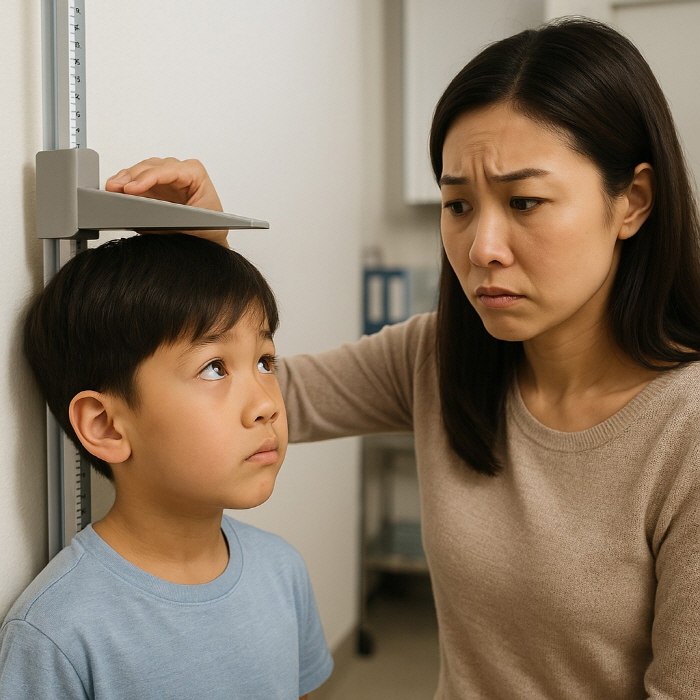If you're worried about growing your height, check this first
|
Growth is not determined simply by genetic factors. Various lifestyle habits such as growth hormone secretion, nutritional status, sleeping habits, exercise amount, and stress work together. The growth plate is a cartilage tissue at the end of the bone and plays a role in extending the length of the bone as the cells divide and multiply. In general, the height increases to the maximum from the upper grades of elementary school to the early middle school after puberty. This period can be said to be 'Golden Time for Height Growth'.
The condition of the growth plate can be confirmed by radiography. A left wrist X-ray examination is standard. Bone age is evaluated by analyzing the length and density of the hand and wrist bones. If the bone age progresses faster than the actual age, early growth may be suspected, and the growth plate may close early. In addition, checking growth hormone secretion abnormalities, thyroid function, and vitamin D status through blood tests helps determine the cause of poor growth.
Professor Kim Sung-eon of the Department of Pediatrics and Adolescents at the Catholic University of Korea's Incheon St. Mary's Hospital said, "Early detection of growth disorders is more important than anything else because growth plates do not reopen once they are closed. If a child is shorter than the 300th percentile based on the same age and gender, or has grown to be less than 4 cm in height over the past year, we recommend that you take a growth test at a hospital."
It is also important to manage lifestyle habits that protect the growth plate. Balanced nutrition is fundamental. In particular, protein, calcium, and vitamin D should be supplied sufficiently. Lack of sleep through watching smartphones or TV until late at night suppresses the secretion of growth hormones. Growth hormone is most secreted during deep sleep between 10 p.m. and 2 a.m. In addition, regular weight-bearing exercises such as skipping rope and basketball give positive stimulation to bone growth.
Professor Kim Sung-eon said, `Children's growth is not just a matter of height, but also linked to their overall physical health in adulthood, including bones, muscles, weight, and metabolism"Sufficient sleep, proper eating habits, and regular exercise are important factors that help the growth plate's activities," he advised.
If children and adolescents in the growing stage are too short, growth hormone treatment may be considered. If growth hormone deficiency is confirmed through blood tests and growth hormone stimulation tests, steady injection treatment can increase the growth rate. The faster the treatment starts without missing the timing, the greater the effect. But it doesn't apply to every child. It is recommended only if there was growth hormone deficiency, hypotension due to specific diseases, and delayed growth in fetal life. Treatment should not be started simply because you are short, but specialist counseling and accurate diagnosis are needed.
Professor Kim Sung-eon said, "Growth is not only due to genetic factors, but also to lifestyle, hormonal conditions, and nutritional balance"It is desirable to constantly observe changes in the child's growth at home and, if necessary, periodically check the growth status and development process with the help of a specialist."
|
This article was translated by Naver AI translator.





